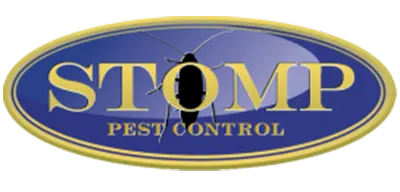Stomp Pest Control provides comprehensive ant control for residents and businesses in Raleigh and beyond. If you’ve been dealing with pesky ants that return again and again, it’s time to contact the professional ant extermination team at Stomp Pest Control. Our affordable pest control packages have been carefully crafted for homeowners who are price-conscious but don’t want to sacrifice quality.
Benefits of Professional Ant Control for Your Home
Like most animals and insects, ants serve ecological purposes. From cleaning up dead organisms to being a palatable food source for other animals, ants play a large part in our ecosystem. The problem arises when ants find their way inside your home or take over your yard. As soon as you notice an ant in your home whether it’s crawling on the wall or stealing food from the pantry, it’s time to implement effective ant control. Your pets, children, and family can be inconvenienced by these pesky insects that love to take over a yard and put a dent in outside playtime.
When it comes to implementing affordable and effective ant control on your property, you can experience the following benefits:
- More enjoyment outdoors – from hosting an outdoor cookout to spending time with your family outside, the last thing you want is to be impeded by ants.
- Stomp Pest Control has the experience and pest control measures to kill ants at the source
- Our products are safe to use around children and pets
- We treat ants at the source, ensuring they don’t return
- If ants somehow find a way back into your home or yard, we’ll re-treat the area for no additional cost
Signs You Need an Ant Exterminator
If you’ve been using common ant killers, such as ant bait or spray, you’re killing what is known as “worker ants.” Worker ants serve one purpose — they find food sources, such as inside your home or in your yard near a garbage can where food is readily accessible. Eradicating worker ants is a great way to slow down your ant problem, but you won’t be treating the source— the queen ant. The queen ant is the sole instigator of ant problems, both inside and outside of your home. The worker ants simply find food and carry it back to the colony where the queen lives. Until the queen ant is killed, you will continue to experience unwanted ant infestations. If you’ve tried to kill ants yourself but find them returning each season, it’s time to outsource the work to an ant exterminator who can treat the problem at its source.
The following are signs you need an ant exterminator:
- Trails that look like sawdust which is the result of broken down wood or other organic matter that ants use to build a nest
- You hear hollow sounds on wooden beams or floorboards when you knock on them
- You hear faint noises in your walls (this could also be a sign of mice, so be sure to have the problem thoroughly assessed).
- You see ants around your house or ant mounds outside (the most obvious sign)
- Trees are dying with ants living in them
Ant Extermination for Multiple Species
Certain species of ants are treated differently than others, so identifying the species of ants is the first step our ant exterminators take. In the Raleigh area, these are the common species we encounter:
Pharaoh Ants
How to Manage Pharaoh Ants:
Odorous House Ants
How to Manage Odorous House Ants:
Argentine Ants
How to Get Rid of Argentine Ants:
Fire Ants
How to Get Rid of Imported Fire Ants:
Little Black Ants
How to Get Rid of Little Black Ants:
Talk to Our Ant Control Experts in Raleigh Today
At Stomp Pest Control, our team undergoes continuous training to ensure your property is treated with superior products in a professional manner. In addition, we carefully crafted and implemented a comprehensive Six Step Process from inspection to aerial defense to effective communication ensuring you are happy with our ant control services. In the event your home needs to be re-treated, our team will do so with no questions asked. To get started with our ant control services, give our team a call today at (919) 231-3292 or fill out the contact form below.

